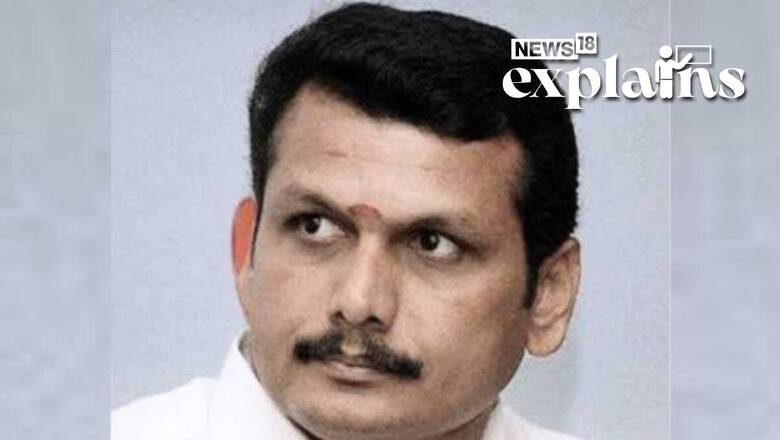
views
The Tamil Nadu government on Wednesday announced the withdrawal of its general consent to the Central Bureau of Investigation (CBI) for conducting investigations in the state. This decision aligns Tamil Nadu with several other states not governed by the Bharatiya Janata Party (BJP) that have previously taken this step.
The timing of this move coincided with the arrest of V Senthil Balaji, the state’s Electricity and Prohibition and Excise Minister, by the Enforcement Directorate, a central investigative agency, in a money laundering case.
A Home Department release here said that according to a specific provision of the the Delhi Special Police Establishment Act, 1946 (Central Act XXV of 1946) the CBI has to secure prior permission from the state government concerned before going there to conduct a probe.
“The Tamil Nadu government has today issued orders withdrawing the general consent given to certain types of cases in 1989 and 1992 under the aforesaid rule. Accordingly, the CBI has to henceforth get the Tamil Nadu government’s prior approval for conducting investigation in the state,” the release said.
The statement also highlighted that similar orders have already been issued by West Bengal, Rajasthan, Kerala, Mizoram, Punjab, and Telangana.
What is the Provision?
The Delhi Special Police Establishment Act, 1946 (Central Act XXV of 1946) is a legislation that provides the legal framework for the establishment and functioning of the Central Bureau of Investigation (CBI), India’s premier investigative agency, according to a report by iPleaders. The act was enacted on 19th May 1946 and has undergone subsequent amendments over the years.
The main objective of the act is to empower the central government to set up a special police force, known as the Delhi Special Police Establishment (DSPE), which is responsible for investigating specific categories of offenses that fall under the jurisdiction of the central government. The DSPE, commonly referred to as the CBI, is tasked with handling cases of corruption, economic offenses, organized crime, and other high-profile cases that have inter-state or international ramifications.
Under the Delhi Special Police Establishment Act, the central government has the authority to extend the jurisdiction of the DSPE/CBI to any state or union territory with the consent of the respective state government. However, the act also contains a provision (Section 6) that requires the CBI to seek prior permission from the state government concerned before initiating any investigation within that state’s jurisdiction. This provision ensures cooperation and coordination between the central investigative agency and the state government.
“6. Consent of State Government to exercise of powers and jurisdiction.—Nothing contained in section 5 shall be deemed to enable any member of the Delhi Special Police Establishment to exercise powers and jurisdiction in any area in 2[a State, not being a Union territory or railway area], without the consent of the Government of that State,” the section states, according to a report by Indian Kanoon.
Hearing in Senthil’s Case to Continue
Meanwhile, hearing on various pleas filed by V Senthil Balaji and the ED will continue at a local court in Chennai on Thursday. While Balaji, Electricity and Prohibition and Excise Minister, had sought for interim bail and a plea to be shifted to a private hospital for further treatment, the ED had prayed for his police custody.
Balaji was arrested early on Wednesday under the Prevention of Money Laundering Act (PMLA), in a cash-for-jobs scam allegedly involving him when he was the Transport Minister in the AIADMK government between 2011 and 2015. Balaji was arrested after a long session of questioning. A local court sent him to judicial custody till June 28.
The ED had launched multi-city searches in the state on Tuesday on the premises linked to the DMK’s Karur strongman as part of the probe into money laundering.
What is the Case?
The Supreme Court in May allowed police and ED to investigate an alleged cash-for-jobs scam against the DMK strongman. Balaji was the transport minister in the AIADMK government, led by the late J Jayalalithaa, in 2011-15. It was alleged that he received kickbacks from various persons for appointing them as drivers and conductors in the transport corporations.
Three FIRs were registered against Balaji and later charge sheets were filed against him, which were pending before a special court for the trial of criminal cases connected to MPs and MLAs. The ED registered a PMLA case against Balaji and others in July 2021 and took up the investigation.
PTI contributed to this report
















Comments
0 comment